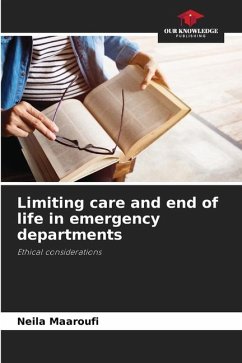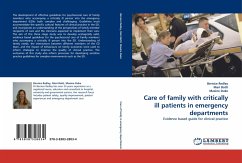In hospital, recognising that a patient is at the end of their life and correctly anticipating the time they have left to live are difficult tasks for staff, but essential if good quality care is to be achieved. In emergency departments, this problem arises frequently and complicates the organisation of work. If death is imminent, the patient is taken care of on the spot. If this is not the case, the rules of emergency medicine dictate that the patient should be transferred to other hospital departments, which are often reluctant to accept dying patients. Despite its similarities with intensive care, geriatrics and general medicine, emergency medicine remains a specific discipline. Therapeutic limitation and withdrawal have emerged in recent years, and their application to patients with a hopeless prognosis has become standard practice. Our study, based on a review of the literature, examines the ethical aspects of limiting and discontinuing active therapies in emergency medicine.
Bitte wählen Sie Ihr Anliegen aus.
Rechnungen
Retourenschein anfordern
Bestellstatus
Storno








